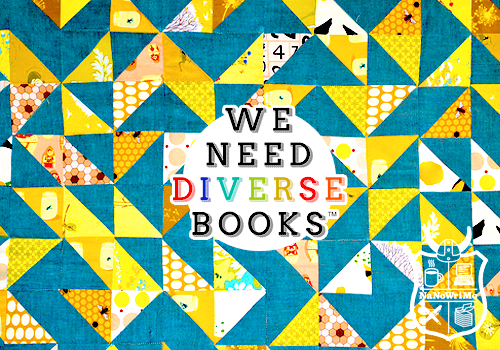We Need Diverse Books: A Guide to Spotting and Growing Past Stereotypes

Throughout October, we’ll be partnering with We Need Diverse Books to bring you a series of blog posts full of helpful advice, tips, and suggestions for writing diversity convincingly and respectfully in your fiction—from people who know what they’re talking about. Today, Ellen Oh shares how to identify, then expand beyond stereotypes:
One of the most common mistakes I see when people try to write diversely is that they fall into the practice of writing a positive stereotype. After all, if it’s positive, it can’t be a stereotype, right?
Wrong.
A stereotype is a positive or negative set of beliefs about the characteristics of a group of people. Just because it is positive, doesn’t make it any less problematic.
Why?
Because a stereotype is a generalization, and a generalization can never come fully to life in your story, no matter how beautiful your words might be. Readers want to care for your characters. Talk to any fan of a well-loved book, and they can often rattle off the detailed physical characteristics, and tragic backstory of their favorite character.
As an author, this is what you want. You want your readers to fall in love with your characters. But how can they if even the author doesn’t believe in them? Because a stereotype is a dead giveaway that:
You don’t care enough about a character to invest the time to learn about them beyond superficial generalities, and
They are not real to you.
And if you don’t care, why should your reader?
Just because you know actual people who may fit a certain stereotype doesn’t justify writing a character whose defining characteristic is that stereotype. Most people cannot be summed up into a neat package. They are reasonable, and emotional, and creative, and practical and silly and wise and impulsive and so very complex. Just like you are. When you approach diversity in your writing, a good rule of thumb is this—how well do you know your characters? The more fleshed out your character is, the less likely you will fall into the fatal trap of stereotypes.
But what if you need your Asian protagonist to be really good at math because it is pivotal to your plot? Or your black character is the star athlete? It all comes down to execution. And that depends on how well you’ve researched your material. How much you care to get it all right.
In Gene Luen Yang’s excellent speech at the National Book Festival he said:
“We have to allow ourselves the freedom to make mistakes, including cultural mistakes, in our first drafts. I believe it’s okay to get cultural details wrong in your first draft. It’s okay if stereotypes emerge. It just means that your experience is limited, that you’re human. Just make sure you iron them out before the final draft. Make sure you do your homework. Make sure your early readers include people who are a part of the culture you’re writing about. Make sure your editor has the insider knowledge to help you out. If they don’t, consider hiring a freelance editor who does.”
That’s how far you should go to make sure that you are doing it right. And this applies to all writers, no matter their background, who want to write about an experience that is different from their own. Just because you are from a marginalized background yourself, doesn’t give you a pass from these rules. If anything, you should be more aware of the importance of accurate representation.
And so I address all writers, everywhere: When you’re done with your manuscript, ask yourself, “Have I done my characters justice?” Do they read as fully fleshed out, complex characters?” Because only then will you have done your part in ridding the world of stereotypes in favor of truth. And your readers will thank you for it.

Originally from NYC, Ellen Oh is Co-founder and President of We Need Diverse Books, and adjunct college instructor, with an insatiable curiosity for ancient Asian history. She also loves martial arts films, K-pop, K-dramas, cooking shows, and is a rabid fan of The Last Airbender and the Legend of Korra series. She is the author of the YA fantasy trilogy, The Prophecy Series. Ellen lives in Bethesda, Maryland with her husband and three daughters and has yet to satisfy her quest for a decent bagel.

We Need Diverse Books (WNDB) is a grassroots nonprofit organization created to address the lack of diverse, non-majority narratives in children’s literature. WNDB is committed to the ideal that embracing diversity will lead to acceptance, empathy, and ultimately equality.
In October, the group will be launching its inaugural Indiegogo campaign to support its future initiatives, including a Diversity in the Classroom program, diverse author grants and awards, and the first ever Diversity Festival in 2016. Volunteer & sign up for its mailing list at diversebooks.org, or follow WNDB on Twitter, Tumblr, Facebook, and Instagram!
Chris Baty's Blog
- Chris Baty's profile
- 63 followers



